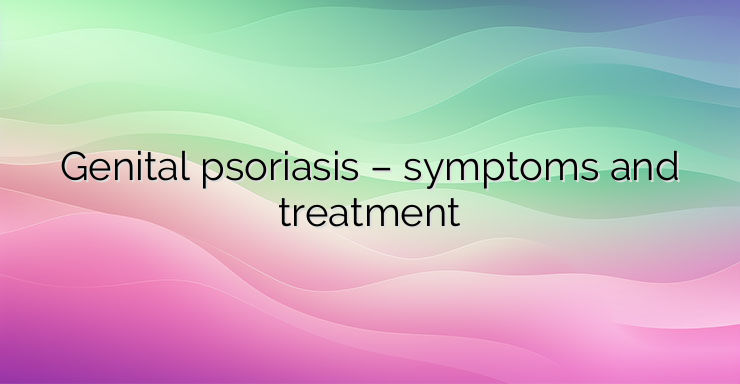It is not yet known what causes psoriasis, but the mechanism by which it occurs is well known: the number of healthy skin cells and some white blood cells increases significantly, causing some cells to migrate to the surface of the skin for days instead of weeks. The body does not have time to shed all these old cells and they start to pile up in layers. The disease can appear on the skin of the whole body, but it is most uncomfortable when it develops in the genital area. The development of smooth, dry and reddish areas of the skin not only leads to itching and severe discomfort, but can also negatively affect the sex life of both sexes. Vulvar psoriasis typically develops with a smooth texture and redness, without peeling skin. Scratching this area can lead to infection and create dryness, thickening of the accumulated layer of cells and additional itching. Genital psoriasis most often affects the outer layers of the genitals, but it is not excluded that the infection also enters the vagina, where it affects the mucous membranes. In men, this infection can appear on the head of the penis or along its length in the form of reddish patches of skin – they can be scaly or smooth and shiny. Removing the itching and discomfort is relatively easy, but treating the lesions – sores, flakes, cracks and clumps of skin – is more difficult. Affected areas of the skin should be kept moist and treated with creams and even ultraviolet light. The most common medications that doctors prescribe are low-concentration corticosteroids – they are proven to help, but can also lead to thinning of the skin with long-term use. Non-cosmetic moisturizers can also be helpful – cosmetic ones often contain perfumes and fragrances that can cause irritation. Medical creams and ointments containing vitamin D are an optimal choice. Emollients are also often recommended – moisturizers that not only contribute with necessary moisture, but also reduce the loss of moisture from the skin. NEWS_MORE_BOX Medicines containing calcineurin inhibitors, such as tacrolimus and pimecrolimus, which suppress the immune system, can also be of great help. They do not lead to thinning of the skin, like corticosteroids, but they can cause a recurrence of old diseases such as genital herpes. Pills, tablets and other oral medications against genital psoriasis must be prescribed by a doctor, because many of them can have side effects such as irritability, headache, insomnia, fever and diarrhea. Although sexual contact is not recommended during treatment, it is not prohibited. In such cases, it is strongly recommended to use a condom – to reduce the contact of the affected areas with irritants, and after the act – to clean them and treat them again with the prescribed creams or ointments. Sexual activity can cause irritation and slight exacerbation of the condition,but it should be mentioned that genital psoriasis is not contagious and cannot be passed on to a partner.


Leave a Reply